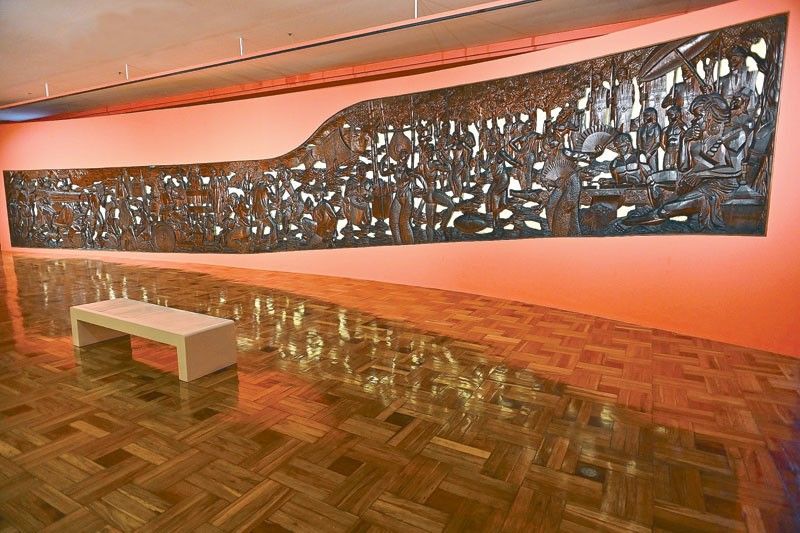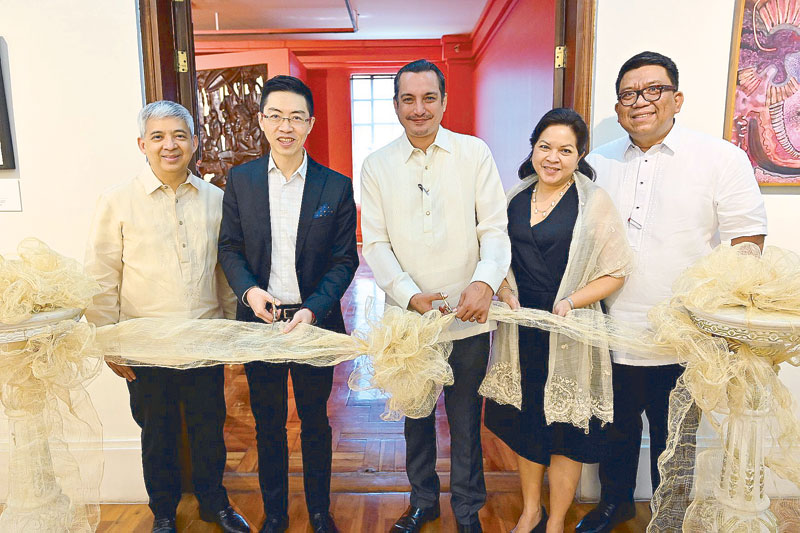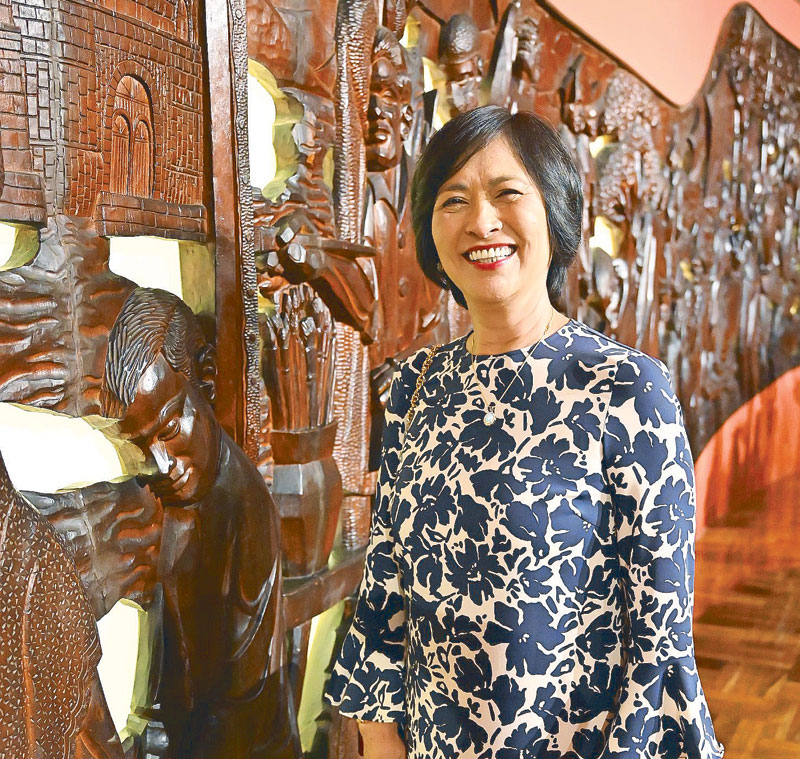Spotlight back on Alcantara masterpiece

The iconic Philam Life Auditorium saw its final curtain call in 2013 after 52 years of serving as the venue for some of the notable musical and theater performances in the country.
As the auditorium took its final bow, it did not just close its doors to the public; it also turned off its spotlight on a massive artistic masterpiece that served as a silent witness to countless rousing applause, numerous encores and outstanding performances — like then eight-year-old piano prodigy Cecile Licad’s orchestral debut in 1969.
In 1961, artist Jose Alcantara was commissioned by Philam Life to make a relief that will adorn the walls of the Philam Life Auditorium. The auditorium, located beside its former head office along United Nations Avenue in Manila, was known for its excellent acoustics, which were done by Bolt, Beranek and Newman who are also credited for the Sydney Opera House, the Cultural Center of the Philippines, and the United Nations Assembly Hall in New York.

(From left) Philam Foundation chairman Aibee Cantos, Philam Life CEO Kelvin Ang, National Museum director Jeremy Barns and assistant director Ana Labrador with Philam Foundation president Max Ventura.
Alcantara, a self-taught artist, created the narra wood panels with the assistance of wood carvers from Paete, Laguna. These panels, which are made from carved wood relief and lacquer, feature elements from Philippine folklore, traditional musical instruments and mythical characters like Maria Makiling and Malakas at Maganda.
After being kept in the dark hallowed hall of the auditorium for several years, a part of this massive classical carving by Alcantara has once again seen the light, thanks to the efforts of the Philam Foundation, the corporate social responsibility arm of Philam Life.
The spotlight is once again back on this Alcantara masterpiece as it was recently unveiled, and now on display, at Gallery XVI of the National Museum of Fine Arts in Manila, facing a painting by National Artist Carlos “Botong” Francisco.
The unveiled panel of the relief, titled by the National Museum Christians Meeting Muslims, was previously mounted on the right side of the Philam Life Auditorium wall. It consists of 19 panels, which depict daily lives of the community during the Spanish regime — women wearing baro’t saya, people praying in a church, a group of dancing women and half-dressed men entertaining a chieftain (or a rajah) surrounded by his assistants.
According to National Museum assistant director Ana Labrador, the left panel will be installed in a different wing of the museum with the Manansala paintings from the International Rice Research Institute. And the rest of the remaining parts of the relief will go to the National Museum of Anthropology and the National Museum of Natural History.
As a strong supporter of Philippine arts, Philam Foundation, for the past five years, has given the National Museum an institutional grant of P5 million, which supplements funding for acquisition, preservation and restoration of artworks, as well as for the upkeep of key pieces of Philam Life’s art collection: the Vicente Manansala paintings and Jose Alcantara murals.

Amy Alcantara Wannamaker, Jose Alcantara’s daughter-in-law.
Aside from the unveiling of the carving, the event was also held to formalize the renewal of another five-year institutional grant for the National Museum.National Museum director Jeremy Barns and assistant director Ana Labrador received the donation from Philam Foundation president Max Ventura and Philam Life chief executive officer Kelvin Ang.
Jose Alcantara, whose family hails from San Fernando, Pampanga and Spain, is one of the few artists who used the Philippine classical wood carving tradition. He was born in Pasay City in 1911 and grew up in Intramuros, Manila together with National Artist Vicente Manansala and painter Antonio Dumlao, whom Alcantara considered as his close childhood friends.
Also present during the unveiling were members of Jose Alcantara’s family, who were overjoyed that the artist’s spectacular work now has a wider audience by being displayed in the National Museum alongside the works of great Filipino artists.
Alcantara’s daughter-in-law and family spokesperson Amy Alcantara Wannamaker shared with Allure that this event was also an opportunity for the younger members of their family to learn more about their grandfather.















